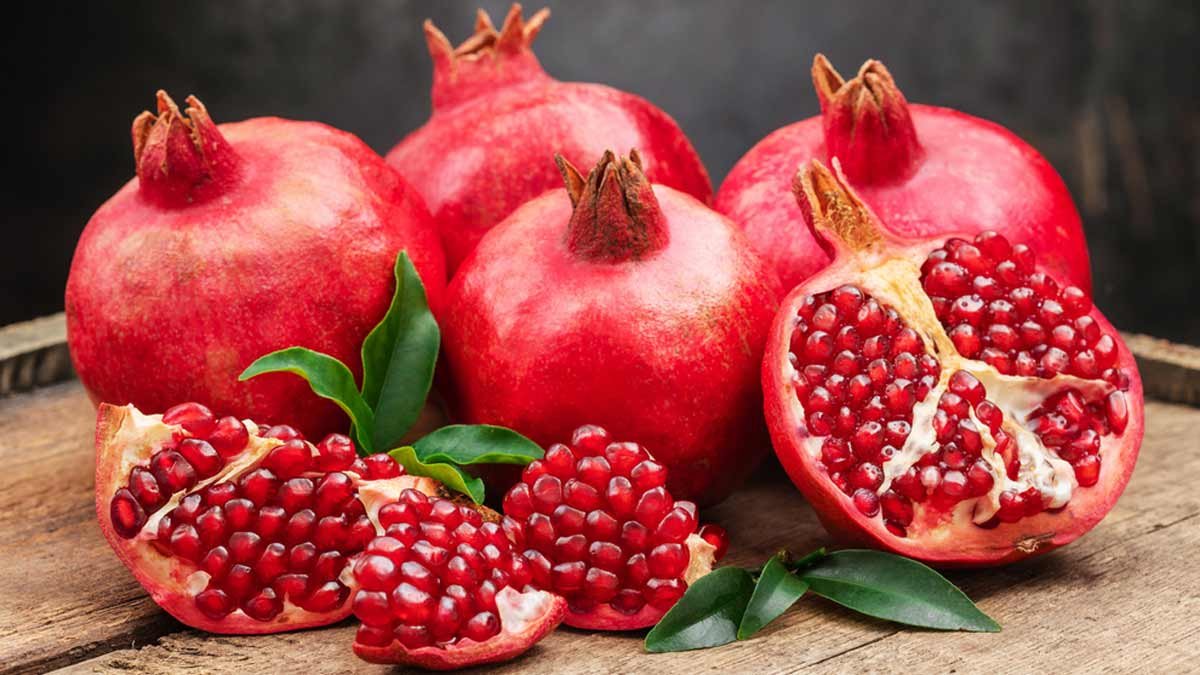Are you a diabetic who loves eating fruits? Can you eat pomegranates?
Is pomegranate good for diabetes? If you have any of these doubts in your mind, don’t worry, we have you covered.
Read on to understand the role of pomegranate in the life of people with high blood sugar and get to know all the benefits of pomegranate.
Pomegranate: Nutritional Profile
Did you know that pomegranates are almost three times rich in antioxidants than red wine and green tea? The following are some nutritional quick facts about pomegranate.
- The antioxidants like polyphenols in pomegranate give it a vibrant red colour.
- Pomegranates have immune-boosting nutrients like vitamin C, vitamin E, and vitamin K.
- Rich in vitamin C, dietary fibre, folate, and potassium, pomegranates are one of the best foods for regulating your heart and blood sugar levels.
- The low glycaemic index (53) and glycaemic load of Pomegranate make it a good fruit of choice for diabetic people.
Advantages of Pomegranate for Diabetes
Pomegranate has a lot of benefits for diabetes. It has antioxidants with anti-inflammatory properties, which decrease the symptoms of high blood sugar like fatigue, muscle pains. This fruit has a low glycemic index and glycaemic load that can help people with high sugars. It also helps decrease insulin resistance in your body. The phenolic compounds in this fruit aid in weight loss and help regulate hunger and appetite.
Ways to Consume Pomegranate
Pomegranates can be given as a fruit directly to people with high blood glucose levels. But if you wish to add a twist, here are a few simple ways to include pomegranate in your daily diet.
1. Salad
Toss the pomegranate arils into your regular green salad or fruit salad.
2. Smoothie
Whip up a yummy smoothie with your favourite nuts, seeds, pomegranate arils and other fruits.
3. Garnish
Garnish your daily avocado toast or grilled meat dishes with some pomegranate arils.
4. Quick snack
Mix your usual Greek yoghurt and granola or oatmeal with pomegranate arils on top.
Best Time to Consume Pomegranate
For maximum benefits, eat pomegranate on an empty stomach early in the morning. If you aren’t a morning person, you could eat it as a pre or post-workout snack.
Discover the fruits that are best for diabetes, like apricots and pineapples, and which to avoid or limit for healthier blood sugar control
Risks of Over Consumption of Pomegranate
There are no studies to prove that pomegranates in excess are harmful for you. However, you may complain of severe constipation or develop the risk of intestinal blockage on eating too many pomegranates.
Other Health Benefits of Pomegranate
You do not need to eat pomegranates just for tackling your high blood sugars. This fruit has other benefits too.
- Fights arthritis and joint pain
- Lowers your risk of heart diseases
- Helps decrease your blood pressure levels and blood cholesterol levels
- Fights bacterial, fungal, and viral infections
- Improves memory and fights Alzheimer’s disease
Don’t Have Time To Read?
- Pomegranate is rich in antioxidants that keep your blood sugar levels under control.
- Sugar patients can eat pomegranate to regulate their blood sugar levels.
- The low glycaemic index and glycemic load of pomegranate make it a beneficial fruit for people with high sugars.
- Eat this fruit as a pre or post-workout snack for maximum benefits.
- Avoid overconsumption as it can cause chronic constipation.
Also Read: Is Kiwi Good for Diabetes
Frequently Asked Questions
Is Pomegranate Good for Diabetic Patients?
Yes. The antioxidants present in pomegranate help regulate insulin resistance and control blood sugar levels.
Is Pomegranate Juice Good for Diabetic Patients?
Yes, diabetic/sugar patients can drink pomegranate juice. Most fruit juices contain free sugars, which increase blood sugar levels quickly. Pomegranates have three times the antioxidants that are present in tea or wine. These antioxidants help in slow release of the free sugars and control your blood sugar levels.
Can Gestational Diabetic Patients Eat Pomegranate?
Yes. The low glycemic index and glycemic load make pomegranate a fruit of choice for regulating your blood sugar levels in pregnancy. It is also rich in folate, calcium, and vitamin K, which are necessary nutrients during pregnancy.

1 comment
[…] Also Read: Pomegranate for Diabetes […]